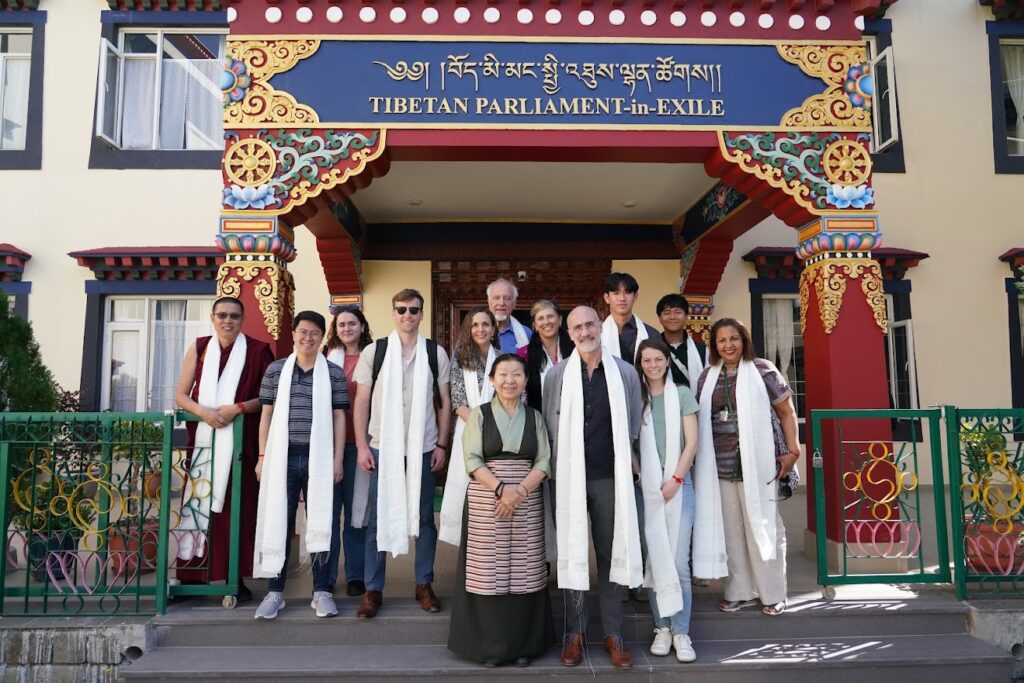Dharamshala: China had a grim year for human rights in 2020, according to the World Report 2021 by Human Rights Watch. The report on China highlighted human rights issues ranging from the “National Security Law” in Hong Kong, repression of the Tibetans and Muslim Uighurs in forced labour camps to the censorship of reporting on the Coronavirus outbreak. Chinese government’s record of human rights violations, one of the worst in the world, has only deteriorated for the dismay of those concerned, including human rights defenders and activists.
Human Rights Watch noted that in 2020 authorities in Tibetan areas continued to severely restrict religious freedom, speech, movement, and assembly, and failed to redress popular concerns about the mining and land grabs by local officials, which often involves intimidation and unlawful use of force by security forces.
The Chinese state has used the coronavirus pandemic to deepen its advance into the private and devotional lives of Tibetans. Tibetans in Tibet were told by the Chinese authorities to refrain from celebrating Losar, Tibetan New Year, celebration last year as a preventive measure to fight against the Covid-19 pandemic. Given the history and magnitude of the festival, the ban has major consequences on many freedoms of the Tibetan people from religious rights to cultural practices. Major monasteries still remain closed for public abstaining the religious Tibetan people from practicing their religion.
The report also sheds light on Adrian Zenz’s case study on China’s militarised vocational training system in Tibet. According to Zenz’s report, Chinese government, under the guise of alleviating poverty in the TAR region and as part of the 13th Five year plan for Tibet, has coerced half-a-million Tibetans into mass labour through a militarised system in the first 7-months of 2020. With this system, Chinese government aims to produce discipline and obedience; transform labourer’s thinking and identity; reform “backwardness”: teach law and Chinese by depreciating Tibetan Language; weaken the perceived negative influence of religion.
Moreover, with regulations for the promotion of “Nationality Unity Model Areas”, the Communist party encouraged economic migration from other parts of China and phased out Tibetan-medium instruction in primary schools. Public protests were withdrawn from the minds of the public through constant surveillance and intimidation, a goal emphasised repeatedly by leading officials.
Detention and sentence of Tibetan into prison continues to exist even today. Every citizen is made to sacrifice their freedom to act according to the policy of the Party. If found acting in opposition to the Party line, severe punishment will ensue.
At the start of the year the Chinese government faced two major challenges; an unknown disease that threatened to tear through its population and a wave of voices online telling the world what was happening. It was clear from the thousands of messages of public outrage appearing on Chinese social media that the government was covering up the Covid-19 virus.
Amid all the confusion, Li Wenliang, known internationally as the “whistleblower” doctor, died on 7 February after it came to light that he had been investigated for “disturbing social order” by “making false comments”. In another case, several citizen journalists were arrested for coverage that threatened the official narrative of Beijing’s response. The Committee to Protect Journalists says three are still in prison.
China imposed national security legislation in Hong Kong on the eve of the anniversary of its British handover to China on July 1. Last week, 53 of Hong Kong’s most prominent pro-democracy activists and politicians were arrested in morning raids, in the biggest crackdown since its imposition. The law is the most aggressive assault on Hong Kong people’s freedoms since the handover from British in 1997.
“Overnight, Beijing robbed the Hong Kong people of their human rights,” said Maya Wang, senior China researcher at Human Rights Watch. “Long used to freedoms, Hong Kong people now face the prospect of lengthy prison terms for possessing banners or chanting slogans that the authorities dislike.”
According to the HRW report, since early 2017, the authorities are believed to have held up to 1.8 million Uyghurs and other Muslim minorities in a vast network of internment camps. The Communist Party’s efforts to erase the identity of Uyghurs and other Muslims in the region persisted, citing reports from the satellite imagery that concluded that over 100 traditional Uyghurs cemeteries had been destroyed and 260 “massive” detention structures had been built since 2017.
“The forced labour of Uyghurs in Xinjiang doesn’t have a strong international response that it needs, as compared to that of Rohingya Muslims in Myanmar’, said Sophie Richardson, China director at Human Rights Watch.
– Filed by UN, EU and Human Rights Desk/DIIR





